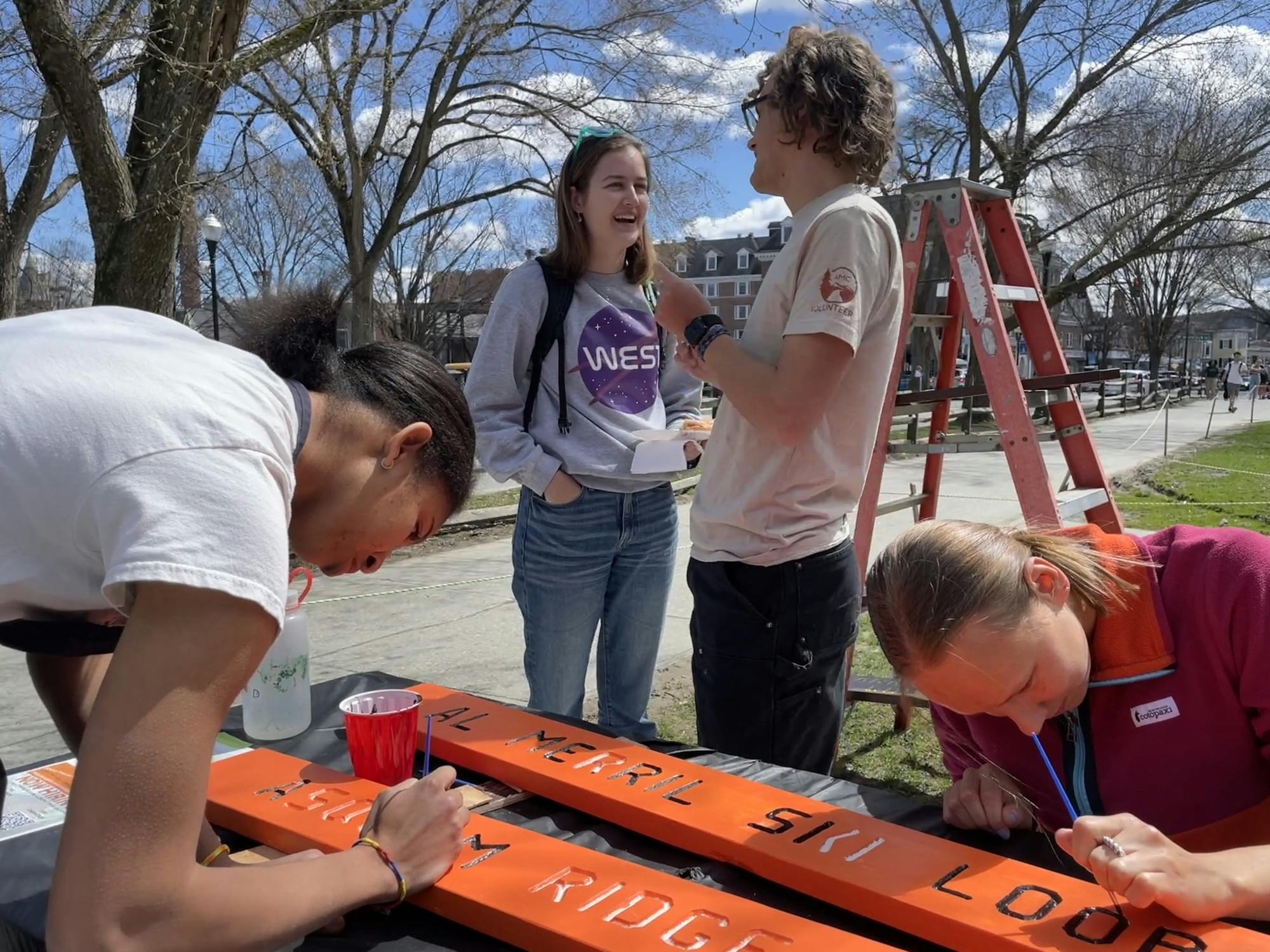First-Year Trips planning for the Class of 2028 is underway, according to Trips program director Keelia Stevens ’24. The Trips directorate — which includes 24 Croo captains, coordinators and trainers — has been working together to select Trip Leaders, organize trainings for student leaders and coordinate programming.
“[The process] kind of starts right after the last set of Trips ends [in early September], so it’s a full-year thing,” Stevens said. “We’re starting to think about incoming students and what communication looks like to [them].”
Outdoor logistics co-coordinator Anna St. Jean ’25 said that communications to incoming students about signing up for Trips will be “coming up soon.”
“We had a table at Dimensions [for] getting Trips on people’s radars,” St. Jean said. “Once [the admitted students] have actually committed or decided, we’ll start sending them lots of emails, start doing Instagram takeovers and get it out there that Trips exists and is awesome.”
Meanwhile, initial Trip Leader and Croo member applications were due in February, and selections have already been finalized and sent out, according to Stevens.
Trip Leader and Croo member positions are selective, according to both Trip Leader co-trainer Nico Ludkowski ’26 and Lodj crew co-captain Madeline Wolfe ’25.
“One thing that we look for is people showing respect and inclusivity, and [who] just wanted to be open about [their] Dartmouth experience [with the Class of 2028],” Wolfe said.
Ludkowski emphasized that the directorate considers the way in which Trip Leaders will guide incoming students.
“We focus heavily on how [Trip Leaders] are going to build community, [since] they are probably going to be the first mentors that [incoming students] are going to have,” Ludkowski said.
Despite high application numbers, outreach is still a critical component of attracting students to sign up for Trip Leader positions, according to Sklodj Croo co-captain Anna Chabica ’25.
Chabica added that Directorate members are always looking for new outreach methods to get people involved.
“Our inclusivity coordinator actually went to talk to the football coach to try to see if the football players can become Trip Leaders, and he gave her a tour of the football weight room,” Chabica said. “So we really try to reach out to everyone who might be interested.”
Members of the Directorate urged all members of the community to participate in Trips planning.
“I think Trips [are] for upperclassmen too,” St. Jean said. “For a lot of people, it restores their excitement about Dartmouth, and it makes them feel really happy about the community — at least, it does for me.”
Stevens added that Trips is an opportunity to bring people together from different parts of the Dartmouth community.
“At Dartmouth, we get into our different spaces and things like that, which is totally okay,” Steves said. “[Trips are] a chance [to] meet people that you wouldn’t necessarily have crossed paths with.”
After accepting their position as either a Trip Leader or Croo member, upperclassmen must undergo mandatory training sessions.
“The goal is, by the end of spring [term], all volunteers that are [on campus] will have completed all their training,” Stevens said.
Ludkowski said their role entails teaching members of the Directorate how to lead training.
Trip leaders must undergo outdoor practical incident prevention and medical training prior to leading their trip section, according to Ludkowski.
Outdoor practical training includes learning to set up a tarp, cook with an outdoor stove and “leave no trace” practices to have minimal impact on the environment, Ludkowski said. Incident prevention training goes over “soft skills” such as navigating mental health concerns or handling questions about inclusivity. Medical training focuses on documenting and responding to medical incidents and emergencies that may occur on Trips.
Wolfe said Croo members for the Lodj will go through other specific training, such as food training — which includes hygiene and kitchen sanitation, along with allergy training to avoid cross-contamination.
Both Trip Leaders and Croo members must also undergo incident prevention training which prepares them for handling difficult conversations that may arise during Trips, according to Stevens.
“It’s a lot of people coming from a lot of different backgrounds and experiences … which is wonderful, but also brings up a lot of situations that I don’t think we all deal with at Dartmouth,” Stevens said. “So a lot of [the training] is getting Trip Leaders thinking about these questions beforehand, [asking themselves] ‘How do I step in and deal with this situation?’”
All members involved with the program share the same passion for Trips and are excited to welcome the incoming class to Dartmouth, Ludkowski said.
“We really do love what we do,” Ludkowski said. “It’s really something special. We call it ‘Tripsluv,’ but it seems to be something special that I haven’t even seen at other schools with outdoor programs.”
St. Jean said she also believes the Trips program is “unique” because a large proportion of the first-year class does it, which makes it a “shared experience” for each new group of incoming freshmen.
“I was so scared coming into college, and having people that were there for me — like my own Trip Leaders and upperclassmen that were supportive — made me feel like I belong here,” St. Jean said. “Having the chance to do that for other people is really special.”
Dara Casey ’25, who will be a Trip Leader this fall, said she is looking to make the most out of her Trip with incoming freshmen.
“I really want to have reunions with my Trips group [and] teach them [Dartmouth traditions],” Casey said.




